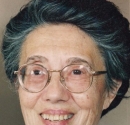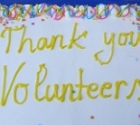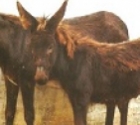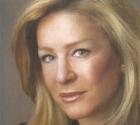
Dr. Uri and Beryl Milunsky
1969 proved to be an eventful period in my life. I was in a private anesthetic practice in Johannesburg, and a member of the Israeli medical committee involved in all medical matters pertaining to Israel’s welfare. Attending and briefing us at our monthly meetings was an extremely efficient and fantastically able emissary from Israel.
We were all acutely aware of the crisis in Israel in 1969 as Abdul Nasser had declared a war of attrition against Israel (March 1969). The sporadic clashes that had occurred since the 6 Day War were now followed by intense daily mortar and artillery barrages across the Suez Canal. Nasser was intent upon recapturing the Sinai Peninsula. Our committee received an urgent call from Israel requesting volunteer assistance at Tel Hashomer hospital. A team of four was immediately formed - 2 anesthetists, of which I was one, (the late Dr Hennie Judelman the other), a plastic surgeon specializing in hand surgery and burns (the late Dr Isadore Kaplan) and an orthopedic surgeon (the late Dr Charles Malkin) - all dedicated doctors. Can you imagine the shock to my wife Beryl and the whole family when I told them that I was going to Israel as a volunteer. There were cries of "have you gone meshuga?" Reason finally prevailed, especially when I told Beryl she could join me after a few weeks. But my elderly parents had great difficulty reconciling themselves to the fact that their son was “off to war”. I closed up my practice and a week later was on an El Al flight to Israel. After a long and tedious flight we finally arrived in Israel at 1 am the following morning. Charlie and Hennie were met by relatives who promptly whisked them away to their respective homes whilst Isadore and I were driven to the hospital expecting some form of reception. However at that hour (3 am) there was not a soul in sight. The debonair handsome Isadore was already mumbling under his breath about Israeli inefficiency - obviously from a previous experience. After 20 minutes a young female internist came running towards us, apologizing profusely for being late. Isadore just glared at her! She then escorted us to our quarters – two small rooms with unmade beds and bare cupboards “to match”. The intern stood looking on, waiting for someone to say something. Undoubtedly she was aware that we were both in a state of shock. Finally, Isadore broke the silence and asked her very politely if these rooms were to be our accommodation for the duration of our stay. Speaking in fairly good English she replied in the affirmative, and quickly added that she would go and find some bedding for us. Before she could utter another word, he asked her in a quiet modulated tone "Doctor, would you kindly order a taxi to take me to the Hilton hotel in Tel Aviv - thank you". I thought he had gone crazy, especially when he asked me if I was coming with. I simply shook my head. "Can’t afford it". "OK", said Isadore, and with a cheerful “cheerio, see you in the morning,” he was gone. The stunned intern then ran off to do his bidding and search for my bedding. By the time she finally arrived - an hour later, apologizing that she had been caught up in the theater watching an op. I had killed squadrons of Israeli mosquitoes which had invaded “my room” when I inadvertently widely opened the windows to allow for fresh air. I left a legacy of bloodstained walls. Needless to say I did not sleep too well in the remaining few hours of darkness.
I woke up early with a throbbing headache and inquired from a resident how to get to the operating theaters. Hennie and Charlie arrived simultaneously and we were greeted by the staff with a hearty “Shalom, welcome”. Tea, coffee and buns were awaiting us. Then the inevitable "where is Dr Kaplan?" Gingerly I replied “at the Hilton hotel, but he will be here shortly”. The head of the department then knowingly exclaimed "Ah! the rich surgeon stays at the Hilton but the poor anesthetist stays at the hospital". He then took us on a short tour of the hospital. The equipment was excellent but both Hennie and I were intimidated by the wide variety of anesthetic machines. However, we rapidly learned how to use them. We wanted no anesthetic disasters! Knowing that we would mainly be dealing with trauma cases, we had brought with us a few dozen phials of a relatively new anesthetic drug (three decades ago, courtesy of Parke Davis) which could be used instead of a full general anesthetic for repeated burn dressings or short surgical procedures in seriously wounded patients. It proved to be extremely useful in selected cases and the Israeli anesthetists were very thankful for the drug. The Egyptians exacted a very heavy toll, and the nature of the injuries left an indelible print on my mind. The whirling of an approaching helicopter in the dead of night often awakened Beryl and myself. It always signified trouble. On one occasion a request was made for anesthetic help at a Gaza hospital, but the head of the department told us in no uncertain terms that he would not permit us volunteers to go to Gaza "to have our heads blown off by crazy bomb-throwing terrorists" - as he put it.
On a lighter note - one amusing, the other not so amusing.
Late one afternoon I was waiting for Beryl (who had joined me a few weeks earlier) to return from Tel Aviv where she had gone sightseeing and shopping. I was getting restless, wondering why she was so late, when a police car drove up virtually to the door and two young good looking policemen got out of the car and opened the door for 'Madame' Beryl. She gave them a winning smile and a wave of the hand as they drove off smiling and waving back. Apparently she had lost her way, and on enquiring from policemen in a police car how to get to the hospital was told to "get in" and they drove her directly to the medical quarters. I just gaped at the scene. Only in Israel could this have occurred.
The following incident was not that amusing, and was actually an embarrassment. An operation on a badly injured and burnt soldier had been specially scheduled to accommodate a few visiting plastic surgeons requesting to observe Isadore’s highly specialized hand surgery techniques (not my anaesthetic technique). I anaesthetized the patient and connected the endotracheal tube (a tube inserted into the trachea) to the anesthetic machine. After the operation had progressed for about 40 minutes I was summoned to the phone to contact the ward as soon as possible. Normally I never leave the theater during an operation, but it sounded urgent so I asked Charlie who was sitting next to me, to momentarily keep an eye on the patient. The ward sister kept me longer than expected when suddenly the loudspeaker blared forth, “Will Dr Milunsky please return to the theater immediately.” Terrified, I rushed back to be greeted by a ghastly scenario – not to be forgotten. The burly soldier was half off the operating table and clutching at his throat trying to pull the endotracheal tube out, whilst a dozen pair of hands were trying to restrain him. Shocked as I was, I quickly grasped what had happened. Charlie was so engrossed in watching the op, that whilst leaning over to get a better view he unwittingly dislodged the anesthetic machine from the endotracheal tube with the net result that the patient was not receiving any anesthetic and consequently waking up. I pushed Charlie unceremoniously aside and reconnected the machine to the tube, which fortunately was still in place. The patient soon settled down and had to be 'retoweled', whilst I looked on sheepishly under the withering gaze of the theater sister who was not too impressed with me. Charlie however kept very quiet. The operation recommenced with an excellent surgical result, T G. I often wonder whether anyone ever told the patient what had transpired during the op. The following day I was forgiven by all and we were given a heartwarming party to thank us, as we were returning to South Africa. We returned to South Africa very tired, but inwardly very happy that we had been of service to Israel in its time of need.
A shorter stint at the magnificent Rambam Medical Center in Haifa in 1974 was just as rewarding and in 1988 Johannesburg Jewish doctors donated a gift of equipment to establish a new Intensive Care Unit in the Neurosurgery dept at the hospital, which was greatly appreciated.
 MEMBERSHOP PERKS-An ESRA Modiin Initiative
MEMBERSHOP PERKS-An ESRA Modiin Initiative KINDERTRANSPORT JUNE 5-6 1939
KINDERTRANSPORT JUNE 5-6 1939 HOW TO CARE FOR YOUR CHILD'S TEETH
HOW TO CARE FOR YOUR CHILD'S TEETH A new website in English - on Volunteering - Launched in Israel
A new website in English - on Volunteering - Launched in Israel Help Needed for Abused Horses and Donkeys
Help Needed for Abused Horses and Donkeys Heather's Heseg
Heather's Heseg Uri Milunsky
Uri Milunsky